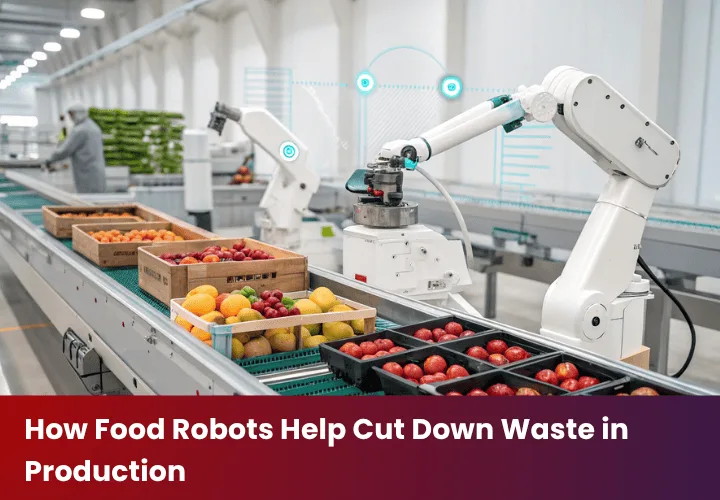
Food waste is a massive global issue, with millions of tons of edible produce discarded every year due to inefficiencies in sorting, handling, and packaging. However, the integration of robotics into food industry operations is reshaping how manufacturers approach this challenge — reducing waste, improving quality, and boosting sustainability.
Precision Sorting with Vision-Guided Robotics
Traditional food sorting methods often lead to unnecessary waste due to inaccurate detection of defects. Robotics equipped with advanced vision systems can now identify the smallest imperfections — such as bruises, discoloration, or irregular shapes — with high accuracy. This allows only truly defective items to be discarded, keeping more edible produce in the supply chain and reducing waste at the source.
Gentle Handling with Smart Robotic Arms
Delicate food products like berries, pastries, or leafy greens are often damaged during manual or mechanical handling. Robotics now feature soft grippers and adaptive arms designed to handle fragile items with care. This technology helps maintain food quality, reduces bruising, and extends product shelf life — all while minimizing spoilage during transport or packaging.
AI-Driven Packaging Optimization
Modern robots integrated with artificial intelligence are transforming packaging processes. These smart systems evaluate the size, shape, and sensitivity of each product and recommend optimal packaging formats. This reduces over-packaging and ensures better protection, directly lowering the chances of spoilage or return due to damaged goods.
Real-Time Monitoring and Adjustments
Robotics systems in food processing plants are often equipped with real-time sensors that provide immediate feedback. If a repetitive issue — like tearing or crushing — is detected, the system can automatically adjust its settings or alert a technician for intervention. This continuous feedback loop minimizes trial-and-error adjustments and significantly reduces cumulative waste.
Sustainable and Profitable Operations
Reducing food waste through robotics not only supports sustainability goals but also improves profitability. Lower waste means reduced costs, increased product output, and better resource utilization. Businesses embracing robotic automation are also seen as environmentally responsible, enhancing brand reputation and consumer trust.
Final Thought:
Robotics in the food industry isn’t just about automation — it’s about smarter, cleaner, and more efficient operations. As technology continues to evolve, robotic solutions are proving essential in tackling one of the food industry’s biggest challenges: waste.
